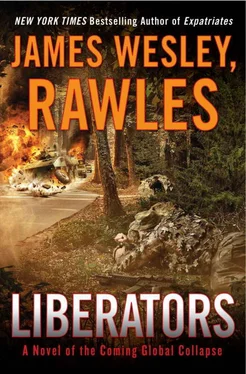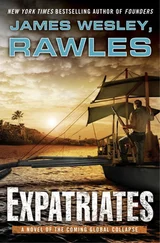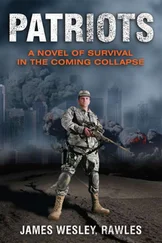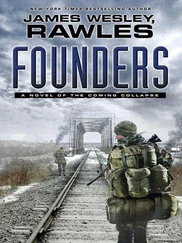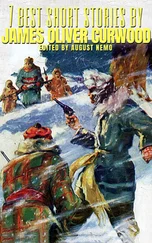“Okay.”
Three hours later, over lunch, Phil quizzed her again. He started by asking, “How do you feel?”
“Exhausted!”
Phil grinned and said, “Good, very good. That means you did the viewing in the right frame of mind.”
Malorie exclaimed, “That was an amazing exercise!”
“I thought that you’d like that. By the way, you can do that watching any movie—even a romantic comedy. That was a trick taught me by a colleague from MI5, in England. Oh, and I should mention that two other variants of the exercise are to turn the sound down completely, or to flip the laptop screen nearly closed or dim the screen and concentrate on just the audio. I’ve watched the same movies four times using these exercises, and it is amazing what you learn to pick up, each way.”
• • •
Mal and Phil were always careful to pull out no more than three or four file folders at a time, just in case all of the “intel boxes” had to disappear into the closet in a hurry. (The plan was for both Phil and Malorie to hide in the closet in case of a search.)
Because of the huge backlog of captured documents, Malorie initially worked ten to eleven hours per day, sorting through documents and translating them. Phil was usually with her for most of the day, explaining the military jargon, acronyms, and intelligence terminology. The documents had already been roughly sorted by date, but beyond that they were a jumble. After they had been reorganized and sorted in neatly labeled manila folders, they filled four boxes. Each folder was labeled by subject and also had its tab color-coded blue, yellow, or red to designate low-, medium-, or high-intelligence-value material.
Most of the documents were not fully translated. With 90 percent of the documents she would simply staple on a “gist” summary page. Only the most important documents were translated word for word. Later, when she had more time, she worked back through a lot of the gisted documents and wrote more detailed summaries. As winter set in and the pace of work slowed, she shifted her attention to captured and pilfered technical manuals. The highest priorities were manuals for radios and small arms.
They used Phil’s laptop to write summaries of key intelligence that would be useful if broadcast. These were transferred to memory stick and then sent via the courier network to Washington, where they were read over the air by ham radio operators and relayed to the newly reemerging U.S. mass media. Intelligence on specific targets that needed to be kept secret until after a resistance strike was carried via couriers to the communities within striking distance, where resistance cells were already in place. (Another intelligence cell in Vancouver had been doing the same since the first few months of the resistance war. This was the cell that had coordinated the sinking of the MN Toucan and MN Colibri , in the single-most effective resistance action of the war. It had inspired the formation of dozens of resistance cells.)
Malorie got along well with everyone at the ranch. She and Claire were soon like a mother and daughter. Malorie enjoyed hearing the McGregors’ Canadian idioms. To the McGregors, a couch was a “Chesterfield,” a colored pencil was a “pencil crayon,” a table napkin was a “serviette,” tennis shoes were “runners,” a parking garage was a “parkade,” a fire station was a “fire hall,” and a restroom was a “washroom.”
Phil, Ray, and Stan were all immediately attracted to Malorie, for both her looks and her abilities. When Claire mentioned them staring at her, Malorie joked, “Of course they’re interested. I could be plug ugly and they’d be interested. I’m the only single female in an eight-mile radius.”
Malorie soon gravitated to Phil, but she did not make her interest clear immediately. Malorie found Phil to be a delightful coworker. Despite the stress of the heavy workload, Phil always maintained a good sense of humor. (Phil worked for eleven hours a day doing intel analysis, in addition to his ranch chores.) They shared the same faith in Christ, with an “all grace” outlook on salvation. She loved hearing his stories about Afghanistan and some of his more recent adventures with DCS Task Group Tall Oak. When the subject of his childhood came up, Phil said, “I suppose I had a very regimented upbringing, compared to most kids. It was very Russian.”
“Russian?”
“Yes. The family’s original paternal name was Adamski. My grandfather shortened it to Adams when he became a naturalized citizen. His parents—my great-grandparents—escaped the Russian Revolution and subsequent civil war by traveling across Siberia to the city of Harbin, where there was a large Russian colony. My great-grandfather worked there for the Trans-Siberian Railroad.”
Malorie seemed fascinated. “Tell me more.”
“Okay, here’s the condensed version of how my folks got to the States: Both of my grandparents on my father’s side grew up in Harbin and came to the States separately. My grandmother left Harbin for Seattle to attend the University of Washington before World War II. After my grandfather got a master’s degree in electrical engineering in Harbin he went to Shanghai and somehow got a job in Australia, where he worked at the Mount Isa mine, with the ultimate goal of coming to the United States to marry my grandmother. He was in Sydney for the weekend when the Japanese attacked Pearl Harbor. The next day, he went to the U.S. embassy to try to join the U.S. Navy. But when he was there, he ran into a Merchant Marine captain who needed someone to fix a turbine since his ship’s engineer was in the hospital with a hot appendix. My grandfather fixed the turbine and stayed on the ship, leaving all of his clothes and books behind in Mount Isa. He spent the rest of the war in the Merchant Marines.”
Phil continued, “While he was on leave on the West Coast in 1945 he married my grandmother. Then, years later when they were established in California, they ransomed my great-grandparents from the communists and brought them to the States, so my dad got to grow up with both sets of his grandparents living in a cottage on the San Francisco peninsula. So a lot of my grandfather’s and great-grandfather’s personalities rubbed off on my dad, which then rubbed off on me. The last of my grandparents died when I was ten years old, but a lot of their stories are quite well remembered, and a lot of their attitudes are firmly entrenched in me. They had a strong Christian faith and a deep distrust of totalitarianism—and, in fact, of most other ‘isms.’”
• • •
On Malorie’s third day at the ranch, it was wash day. Ray went out to start the Lister generator set, but it wasn’t long before he shut it back down and came into the house, looking glum. He kicked off his mud boots and walked to the kitchen table. He said, “We have a problem, ladies and gents: The engine is turning just fine, but the generator is not.”
“Uh-oh,” Alan said.
Alan, Phil, Malorie, and Ray all walked out to the generator shed together. Ray brought a rag and a flashlight.
Examining the generator set, they could see nothing outwardly wrong, other than its usual small and chronic oil leaks. It was Malorie who spotted some metal filings beneath the coupling that joined the engine shaft to the generator shaft. “Hey, look here: Looks like it ate a Woodruff.”
Phil, who only had rudimentary mechanical knowledge, asked, “What’s that?”
Malorie pointed the tips of her index fingers together to illustrate. “The two shafts come together end to end, like this. A Woodruff spline keeps them aligned, and this coupling sleeve holds the spline in place, and the coupling is in turn held in place with these big Allen-head screws.”
Читать дальше
